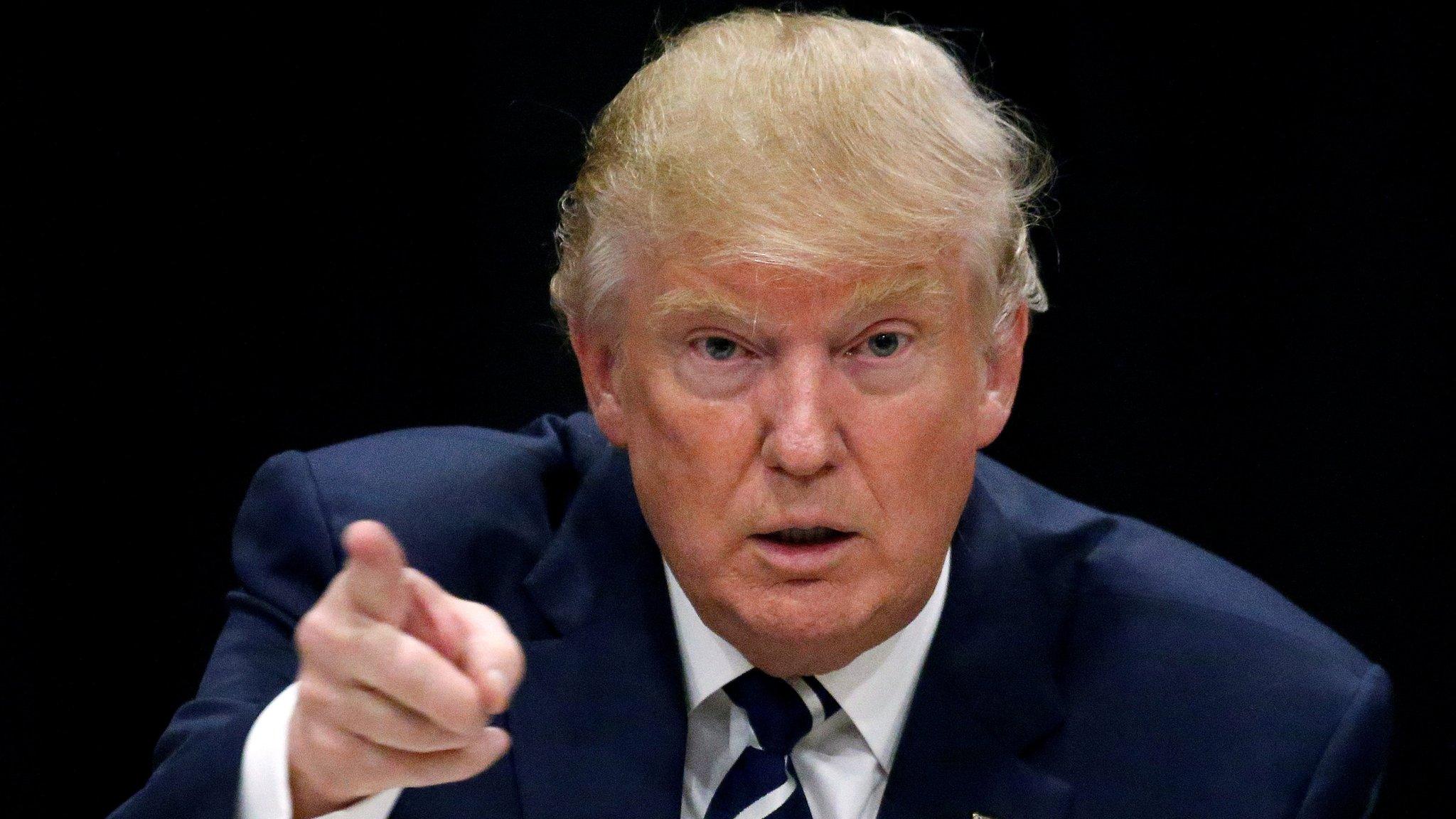Breitbart news site blocked by ad exchange
- Published

Breitbart describes itself as a "conservative media giant"
A leading ad exchange has blacklisted Breitbart News, which until recently was run by one of US President-elect Donald Trump's closest advisers.
AppNexus said it would no longer allow Breitbart to sell ad space via its platform, after determining that the site had broken its code on hate speech and incitement to violence.
Breitbart responded saying it "has always and continues to condemn racism and bigotry in any form".
AppNexus has not given examples.
But a spokesman said a "human audit" of Breitbart had flagged several articles that had caused it concern because of the language they had featured.
"We use a number of third-party standards to determine what is and isn't hate speech, and if we detect a pattern of speech that could incite violence or discrimination against a minority group, we determine that to be non-compliant and we simply won't serve ads against it," AppNexus's spokesman Joshua Zeitz told the BBC.
"I'm not going to put the examples out there because I'm not going to engage in a tit-for-tat on what is compliant."
The Bloomberg news agency was first to report the development.

AppNexus says its tools can deliver billions of ad views every day
It noted that AppNexus' investors, external included Microsoft, News Corp and Sir Martin Sorrell's WPP.
The move follows an earlier ban by Twitter of one of Breitbart's most prominent writers, after claims he had incited abuse against an actress.
Contentious headlines
Breitbart is a right-wing news network based in the US that also has outposts in the UK and Israel.
It is popular with readers from the "alt-right" - which it defines, external as being "younger people who are anti-globalists, very nationalist [and] terribly anti-establishment" - but does not recognise itself as being a part of the movement.
And several of the site's headlines have been provocative, including:
The solution to online 'harassment' is simple: Women should log off
Hoist it high and proud: The Confederate flag proclaims a glorious heritage
Data: Young Muslims in the West are a ticking time bomb, increasingly sympathising with radicals, terror
Some critics have also condemned a headline containing the words "renegade Jew".
However, the site's former executive chairman Steve Bannon recently noted that it had been written by a guest contributor rather than one of Breitbart's own staff.

Steve Bannon was an officer in the United States navy and worked at Goldman Sachs bank before joining Breitbart
Mr Bannon now serves as chief strategist to Donald Trump.
The appointment has been criticised by civil rights groups, including the Southern Poverty Law Center, the Anti-Defamation League and the Council on American Islamic Relations, because of Mr Bannon's record at Breitbart.
But when the president-elect was asked by the New York Times what he made of those concerns, Mr Trump said, external: "Breitbart, first of all, is just a publication.
"They cover stories like you cover stories.
"Now, they are certainly a much more conservative paper, to put it mildly, than The New York Times.
"But Breitbart really is a news organisation that has become quite successful.
"It's got readers, and it does cover subjects that are on the right, but it covers subjects on the left also.
"It's a pretty big thing."
For his part, Mr Bannon told the Wall Street Journal, external he accepted the alt-right had "some racial and anti-Semitic overtones", but added that he had zero tolerance for such views.

Mr Bannon's appointment has proved controversial
"Breitbart is the most pro-Israel site in the United States of America," he added.
Other ad platforms including those of Google, Amazon, RadiumOne, OpenX and Ghostery continue to operate via Breitbart's site.
"We think that all ad tech companies should have rules governing hate speech," said Mr Zeitz.
"We're not in a position to tell them how to make their decisions. But [the rules] should be consistently enforced."
- Published20 November 2016

- Published23 November 2016

- Published16 November 2016

- Published20 July 2016
